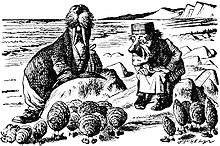boldness
Whatever you can do or dream you can, begin it. Boldness has genius, power, and magic in it.” – Johann Wolfgang von Goethe
Imagine that you were born blind, and that a miraculous operation restores your sight. Suddenly the world is a dazzling riot of color and form. You see your best friend’s face for the very first time. You know the names of all the objects in the room, but not which names belongs to which ones. Is that a rose, a teacup, a candelabra? Why are those flames dancing and shimmering in the fireplace? No one had ever told you that fire was in motion. And its colors! Which of them is “yellow” and which is “orange” and which is “blue?” What does lace look like? How does the light sparkle on the water and what is that glittering mirage?
Presented with such an overwhelming new set of perceptions, what would you want to do? Explore every last inch of this fascinating world. Now stretch your imagination a bit further and pretend that all your senses, not just sight, had been restored. The hunger to experience everything you possibly could would become that much more powerful.
This article describes 100 ways to show boldness through actions or communications.
http://www.timelessinformation.com/100-ways-to-show-boldness/
How bold were the Navy midshipmen in producing this video? What an amazing crew and effort for the USNA Spirit Spot.
http://www.youtube.com/watch?v=7BfYOuwgy5g
Why do we prescribe boldness? Boldness preempts a beginning. Without a beginning, you can’t get to the things you can do or dream you can do. Where does the power and magic and genius enter? The moment you start! The moment you move in any direction, the unseen forces move before you clearing the way if its in your best interest or setting up interruptions to redirect your footsteps aligning highest intent and actual actions.
The time has come,” the Walrus said,
“To talk of many things:
Of shoes—and ships—and sealing-wax—
Of cabbages—and kings—
And why the sea is boiling hot—
And whether pigs have wings.”
“The Walrus and the Carpenter” is a narrative poem by Lewis Carroll that appeared in his book Through the Looking-Glass, published in December 1871. The poem is recited in chapter four, by Tweedledum and Tweedledee to Alice. The poem is composed of 18 stanzas and contains 108 lines. Even though there is great symbolism in this poem which has been interpreted in literary criticism, political slant and popular culture. The essence is a purely fictional tale written to delight the imagination of children not to incite the confusion of adults.
How very bold of the author, to write a tale that baffles or delights, intimidates or charms, amuses or amazes.
How very bold of a culture to set forth their values in a beautifully written form for each of us to read and embrace. There is no better description of “Boldness with genius, magic and power” than the Cherokee Values:
- Spirituality, which creates a bond among Cherokee people in good times and bad, and is a source of hope.
- Group harmony in community and kin relationships, and freely sharing and giving time, talent and treasures.
- Strong individual character, with integrity, honesty, perseverance, courage, respect, trust, honor and humility.
- Strong connection with the land and commitment to stewardship of the homelands of the Cherokee.
- Honoring the past by knowing one’s ancestors, identifying with and belonging to the tribe, and living and preserving Cherokee culture.
- Educating the children by providing values-oriented education and recreation, and by being strong role models for them.
- Possessing a sense of humor, which can lighten pressure in serious situations and help people make good decisions.
http://www.cpfdn.org/about-cpfdn/cherokee-values#.UFnEhw097pQ.facebook
When we take a stand, state a position, implement an action, see a project through, find our life’s work, live in integrity, make an impact, leave a legacy, save a heritage, live in harmony with nature— we are “boldness personified” – the picture of a magic life! Be bold, be beautiful, be you.




